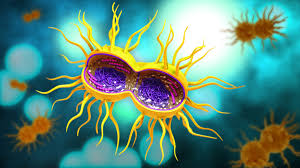Sexually Transmitted Disease also known as STD is one that has been raised awareness about of recent.
Different precautions and safety procedures have been introduced so people can actively protect themselves from these diseases.
In men, some of these disease might show some symptoms while other might not.
Below are some common STDs in men:
Chlamydia
This is a type of STD that can be transmitted via anal, vaginal or oral sex with someone that is infected. Some infected with this disease might not see any symptoms until weeks after. Here are some of the symptoms of STD: pain when urinating, penile discharge, swollen testicles, rectal pain, bleeding.
Gonorrhea
In addition, gonorrhea is a bacterial infection that can affect the anus, throat, or urethra. It can be transmitted during anal, oral, or vaginal sex with a man or woman who has been infected. Most men with gonorrhea do not display any symptoms at all. However, the common symptoms include: pain when urinating, a green, white or yellow discharge from the penis, rash, painful joints.
Hepatitis B
Hepatitis B is caused by the hepatitis B virus (HBV). Unlike other common STDs that can produce more obvious symptoms focused around the genitals, hepatitis B causes a dangerous inflammation of the liver.
Men can contract this by coming into contact with the blood or bodily fluids of a person who is infected with the virus.
Even if a person has no symptoms, the virus can continue to damage the liver if it is left untreated. Symptoms include: loss of appetite, low grade fever, jaundice, vomiting.
Syphilis
This is considered one of the more serious STDs in men because of its link to HIV and the increased risk of developing HIV when infected with syphilis.
It has four different phases: primary, secondary, latent, and tertiary. Each phase has its own set of symptoms.
Less common symptoms of syphilis
Latent syphilis is the stage that occurs after the symptoms of secondary syphilis have stopped and the STD has gone untreated.
Tertiary syphilis is the fourth stage. It’s rare, as few people actually enter the fourth stage even when the syphilis is left untreated. It can cause serious complications, including: damage to the heart, damage to the nervous system, including the brain, joint damage, damage to other parts of the body
This disease can cause serious medical issues and death if it reaches this stage, even several years after infection.
If you experience any of these symptoms, it is important to see a medical practitioner as some might not be related to STD.
Never forget, stay safe always.
Source: Guardian Newspaper




